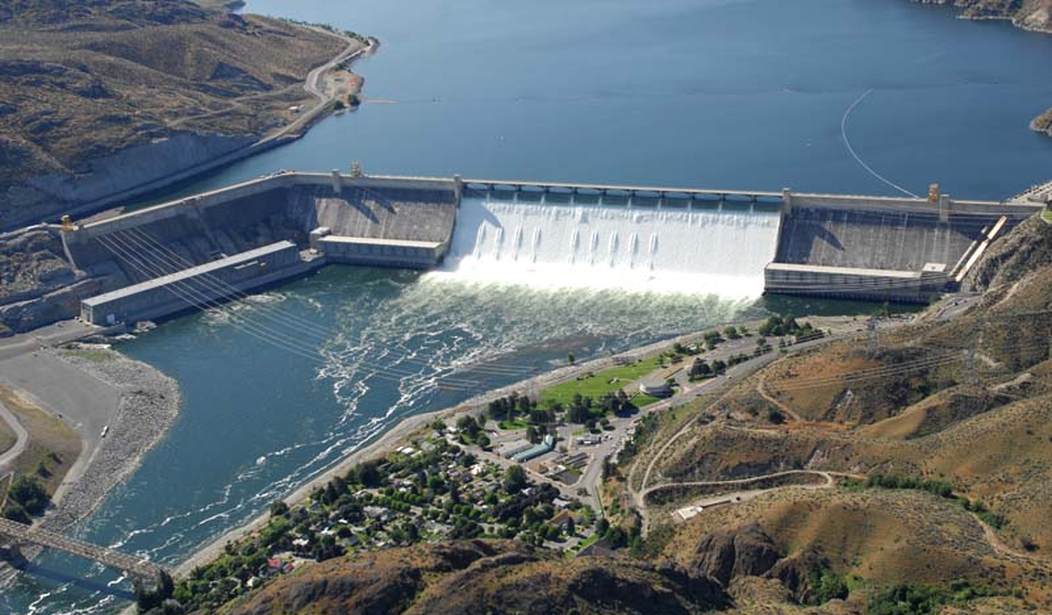A treaty generally gives up a slice of sovereignty for a nation in exchange for something. Sovereignty is not something that should be given away without serious consideration to the long-term consequences of a binding agreement. In the case of the Columbia River Treaty, the United States gave up far too much to Canada for a treaty that is outdated and discriminates against Americans who are in the Pacific Northwest.
The treaty agreed to give cash payments and supplies of electric power to Canada in exchange for Canada building three dams to regulate water flows in order to prevent flooding in the Pacific Northwest of the U.S. The problem with the treaty is that energy consumers who live in the impacted potential flood zones have been swamped with massive bills. The dam was paid for over 15 years ago, yet this zombie treaty lives on and forces higher energy bills on struggling Americans with much of the excess cash spent going to Canadian citizens in the form of government services. This treaty is, simply, unfair.
The State Department estimates that the Columbia River’s drainage basin is roughly the size of Texas and includes people living in Washington, Oregon, Idaho, Montana, Utah, Wyoming, and British Columbia in Canada. The treaty was adopted in 1961 and has outlived its usefulness.
Now is the time to fix the treaty as President Trump fixed the North American Free Trade Agreement (NAFTA). According to Tom Karier who wrote at the Seattle Times on February 18, 2020, the agreement costs the United States between $150 and $350 million every year and U.S. citizens paid off the cost of building the hydroelectric plant way back in 2002. Those excess costs to consumers cause hardship on Americans who have to pay excessive energy bills.
President Donald J. Trump should continue his push on policy, like he has done to nominate a new Supreme Court Justice, Amy Coney Barrett. A good policy would be to force Canada to renegotiate this treaty. Canada has been banning Americans from traveling freely and they continue to hamper the implementation of the treaty that replaced NAFTA. The president should put Canada on notice that they need to treat Americans fairly by renegotiating the Columbia River Treaty.
One of the problems in getting a better deal is that Washington, D.C., bureaucrats have been lazy in pushing for a renegotiation of the treaty. Tom Karier again wrote in The Spokesman-Review in April, “a broad coalition of Northwest entities supported a recommendation to the U.S. State Department in 2013 that they either reach a new agreement with Canada by 2015 or pursue other options. The State Department did neither.” Bureaucrats at the State Department slow-walked the recommendation which “was only six pages long.” The State Department has come up with numerous excuses not to renegotiate the treaty. This lack of action on the part of the federal government is harming American consumers. The bureaucrats at State, as they do, ignore the fact that terminating the deal will put negotiators in a better position to cut a better deal.
Wildfires are hammering my home state of California and the Pacific Northwest thanks to crap forest management over decades (they used to come to my doorstep in Cali when I was a kid). One outcome of this are rolling blackouts that have happened because of a lack of energy produced in the Northwest. Canada has helped keep American homes powered by selling electricity into affected areas, but that energy could have been in U.S. control to begin with. The treaty requires a payment to Canada each year in the form of energy and the Canadians end up selling much of that energy back to U.S. consumers. That energy should stay under the control of American energy producers and used to prevent high energy prices and rolling blackouts in the Pacific Northwest.
The Northwest should be put on a path to energy independence and safety with a better Columbia River Treaty deal. This treaty should be immediately scrapped because it does not adhere to an America First energy policy. Any agreement that forces American citizens to pay higher energy prices to subsidize Canadian welfare programs and to shift control of American energy abroad is a bad one.










Join the conversation as a VIP Member